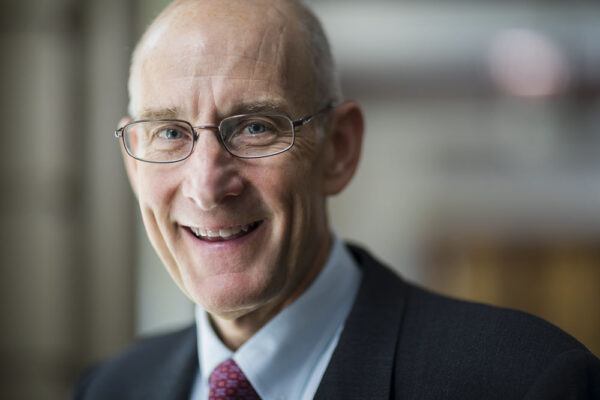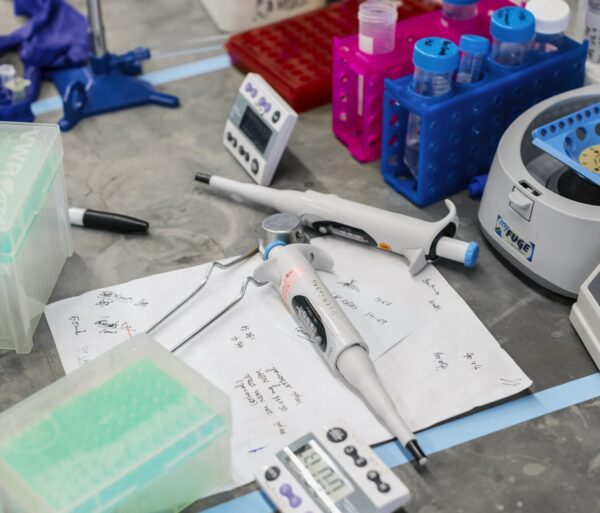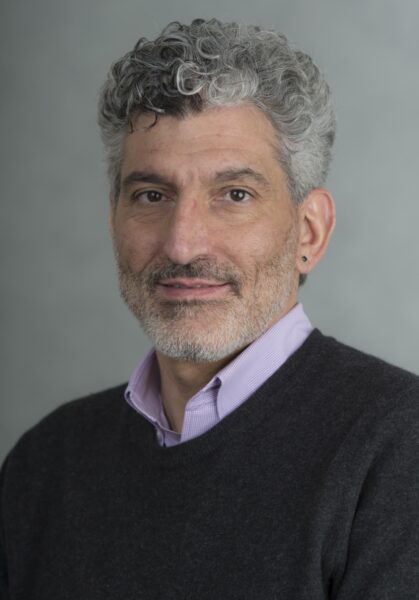
Like a tiny seed that grows into a tree, a small BRF Fay/Frank Seed Grant can be the start of much bigger things for researchers and their colleagues. A Seed grant can help a researcher tap into additional funding. It can help a lab grow into using new techniques and tackling new challenges. And, it can help train young scientists who may one day branch out and start a lab of their own.
No one demonstrates the momentum building power of a seed grant better than Edwin Cook, M.D., Director of the Center for Neurodevelopmental Disorders at the University of Illinois at Chicago. In the 1990s Dr. Cook, who at the time was an assistant professor at the University of Chicago, received four small seed grants totaling $46,800.
The first BRF grant helped Dr. Cook set up his lab, which was focused on using neurochemical techniques to study why children with autism have very high levels of serotonin in their blood platelets.
A few years later, when he wanted to shift from using neurochemical techniques to using genetic tools a second BRF Seed Grant made it possible. To make progress in clinical or translational research, it is often imperative to pursue new ideas or to switch gears to new techniques, Dr. Cook explained.
“The next steps are not always what you thought they would be a few years before,” he said. “You shift to where the opportunities are.”
Dr. Cook’s pivot to exploring the genetic basis of excess serotonin in children with autism has contributed to an overall shift in autism research toward collaborative research approaches that consider the contribution to autism of many genes.
Not only has Dr. Cook and his laboratory been influential in the field of autism research, publishing more than 230 articles in scientific journals, he has managed to grow and sustain his lab with more than $14.5 million in additional grants since receiving his BRF funding.
Dr. Cook has trained dozens of undergraduate, medical, and graduate students expanding the impact of those small seed grants to a new generation of researchers. Some have gone on to create labs of their own, including Jeremy Veenstra-VanderWeele, M.D., an endowed professor and Director of Child and Adolescent Psychiatry at Columbia University and Suma Jacobs, M.D., Ph.D., Director of the Autism Research Program at the University of Minnesota. Others have gone on to become research-savvy physicians who are well prepared to translate new findings into their practices.
“Our work has been defined from the beginning as very collaborative—the story of autism genetics is one that has moved from individual labs like ours to consortia of investigators,” Dr. Cook said. Since 2007, all of the imaging, genetic, and clinical data generated by Cook and his colleagues is available for other researchers to use through the National Database for Autism Research.
This big picture genomic approach provides scientists with a large number of targets to study what happens in the brains of people with autism and to develop treatments in a more systematic way, he said. One of the things Dr. Cook is currently studying is how mutations in multiple genes may contribute to the specific set of symptoms a person with autism experiences.
None of this work and the ripple effects it has had on the field and the careers of up-and-coming scientists would have been possible without the seed funding from BRF. With help from its donors, BRF is committed to continuing to identify and support the careers of innovative researchers like Ed Cook laying the groundwork for neuroscience breakthroughs one seed at a time.
The researchers we fund generate data, publish results, and other scientists consider how their projects may interconnect with those findings. Their post-doc fellows leverage those findings to set up their own labs, expanding on the knowledge generated. It’s a ripple effect. The research we fund is not happening in a silo. The results are disseminated beyond borders. So the work our grantees are doing is impacting research around the world.
Terre A. Constantine, Ph.D., BRF Executive Director and CEO



